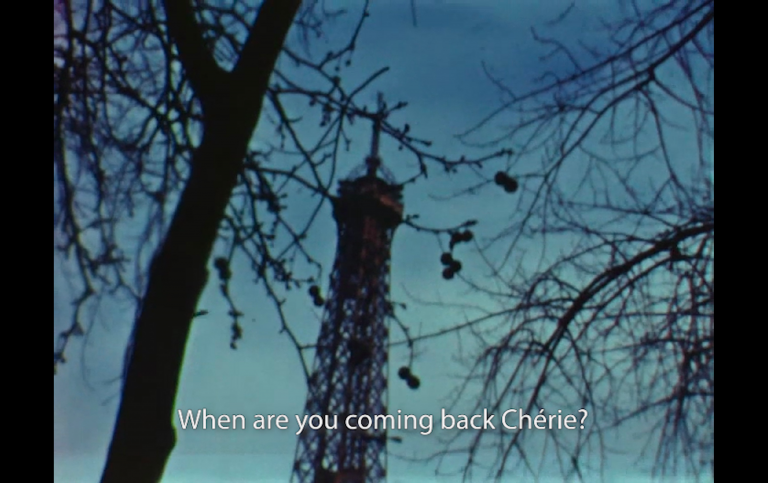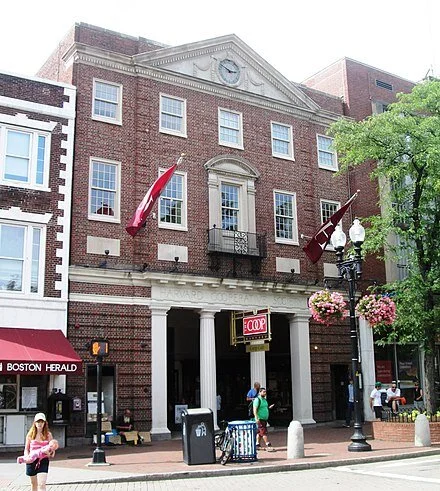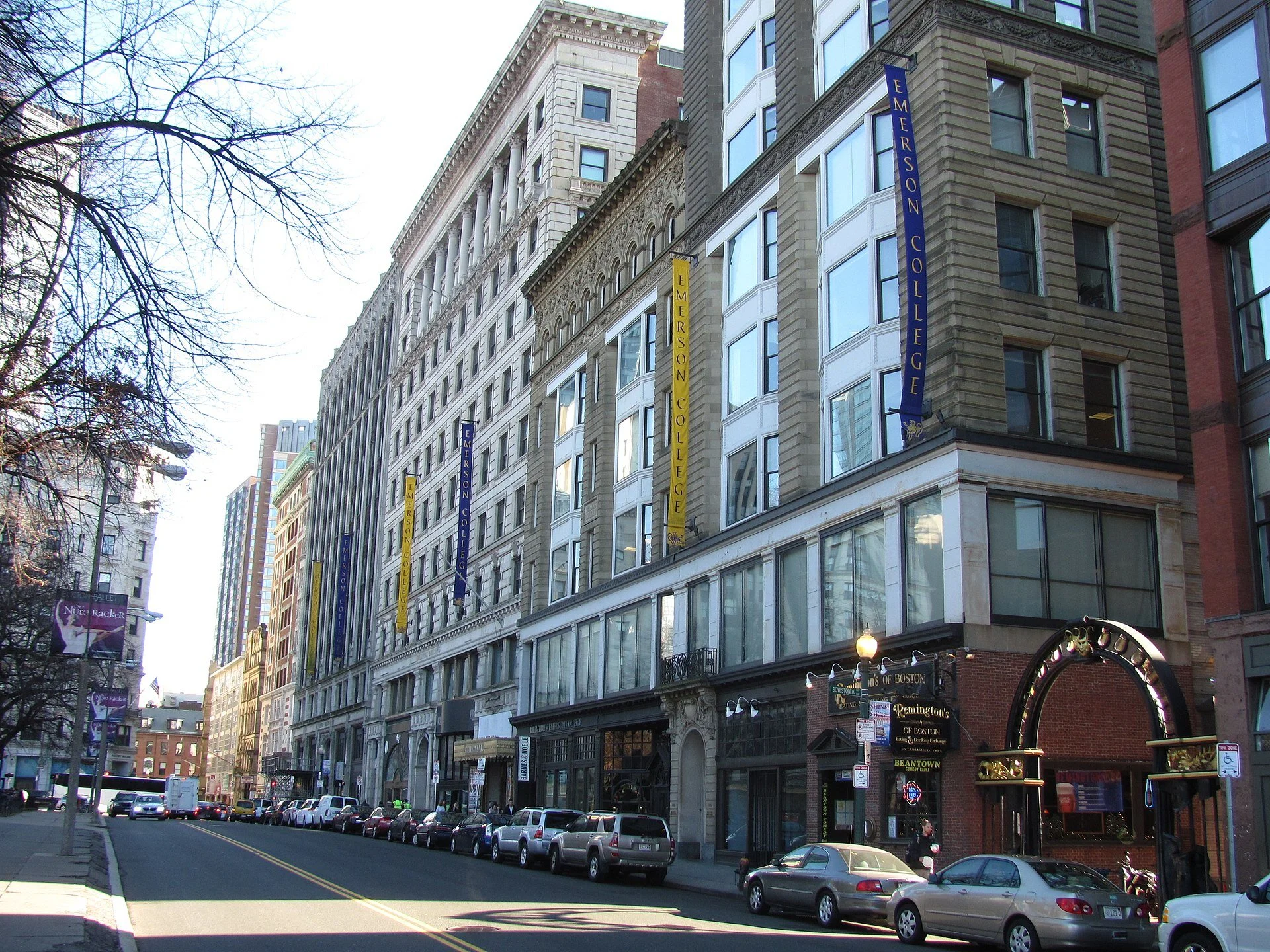
Maybe never
“Call Home” (still from 16 mm film), by Elise Cohen, at the Emerson (College) Contemporary Gallery show “MFA Thesis Projects,’’ in Boston, through May 14
— Photo courtesy: Emerson Contemporary Gallery
The gallery says that Cohen’s work “incorporates mixed media to explore themes of transmission, alienation and memories though 8 mm and 16 mm home movies and audio recording.’’
The erosion of the college 'bookstore'
The Harvard /MIT Coop's (aka Harvard Cooperative Society) main store on Harvard Square was built in 1924 and designed by Perry, Shaw & Hepburn in the Colonial Revival style.
—Photo by Beyond My Ken
From Robert Whitcomb’s “Digital Diary,’’ in GoLocal24.com
It’s sad to see how college bookstores, once major and charming attractions in New England’s many college towns, are being ruined by the chains that have bought them. There are fewer and fewer books as they’re replaced by the likes of logoed sweatshirts, tacky tchotchkes and other junk.
The Brown “Bookstore’’ is particularly depressing. If you want to go to a real bookstore in Providence, I recommend Symposium Books, downtown, or Books on the Square and Paper Nautilus, on Wayland Square.
I guess that the Internet, by taking away the monopoly on textbook sales, helped drive a stake through the old college-bookstore business model. Even the once grand Harvard/MIT Coop bookstore is a skeleton of its former self.
Reading on a screen is not the same as reading on paper, which is easier on the eyes and better supports comprehension and memory of the material. I thought of this the other day in the Route 128 Amtrak/MBTA station, where there’s no longer a newsstand. For that matter, other than one helpful and lonely Amtrak clerk there are no longer any service people to buy tickets or coffee from, or ask a train-schedule question. Heading to the paperless and, for some, serviceless society.
Emerson College occupies this row of buildings across from the corner of Boston Common
— Photo by John Phelan
Even in the pouring rain in downtown Boston last Tuesday, it was fun to see a dozen Emerson College film students shooting scenes on the sidewalk across from the Common. Most appeared to be of East Asian ancestry and half of them had haired dyed green, purple or blue.
The small private college apocalypse
The dining hall and Mather building at Marlboro College, in Marlboro, Vt. It has closed and is merging with Emerson College, in Boston.
Emily Dickinson Hall, at Hampshire College, in Amherst, Mass. The nationally known college has been on the endangered list but has been been revisioning and restructuring itself. This building, designed by the architecture firm of former faculty member Norton Juster and named for the famous 19th Century poet who lived in Amherst, houses much of the college’s humanities operations.
Adapted from Robert Whitcomb’s “Digital Diary,’’ in GoLocal24.com
Many small private colleges, like much of retail, are now facing apocalyptic challenges with the huge loss of revenue caused by the pandemic. They already faced existential threats, especially the shrinking number of applicants caused by demographic changes. Many, including (especially?) in New England will close permanently in the next year or two; others may become almost entirely online operations. Our region has long been known for its large number of small private colleges, some of them very old and some created to serve the flood of Baby Boomers in the ‘60s and ‘70s.
What will become of closed campuses? I’d guess that retirement/assisted-living communities will be one major replacement. Old people comprise the most rapidly growing part of the population. And some of these colleges have lots of land now devoted to lawns and trees right around buildings and, farther away, playing fields. Some of the latter may be turned over to solar-energy facilities or even small farms, or big greenhouses. The supply-chain dangers exposed by the pandemic, as well as the desire for fresher food, and for helping local businesses, may lead many more consumers to patronize local food producers instead of national agribusiness.=
As for public-sector community colleges, they’ll increasingly be vocational-training institutions, with lots of STEM (science, technology, engineering and math) courses.





